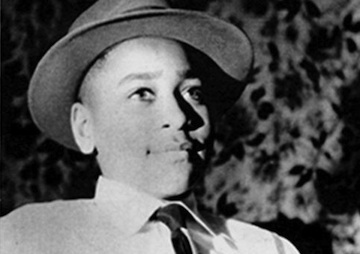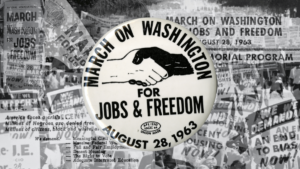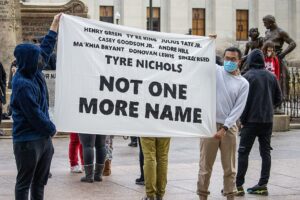Remembering Emmett Till on the 60th Anniversary of His Murder
The 14-year-old boy who was murdered by two white men in rural Mississippi 60 years ago has become more than a symbol of the horrors of racism in America, more than a catalyst for the civil rights movement. Shutterstock
Shutterstock
Shutterstock
In 1955, Emmett Till, a 14-year-old Chicago boy visiting his great-uncle in Mississippi, was abducted by two white men for allegedly whistling at a white woman in a grocery store. Till, who was found beaten and shot to death in the Tallahatchie River three days later, has become more than a symbol of the horrors of racism in America, more than a catalyst for the civil rights movement. He has also become — in the words of his mother, Mamie Elizabeth Till-Mobley — “the universal child,” someone whose gentle spirit and willingness to help others should never be forgotten.
On Friday, the 60th anniversary of Till’s murder, Time magazine looks back:
An all-white jury acquitted the defendants (the husband and brother-in-law of the woman who complained about Till), who later confessed to the killing in a raw, unremorseful interview with Look magazine. One said that they had intended only to beat the teen, but decided to kill him when he showed no fear — and refused to grovel.
“Well, what else could we do? He was hopeless,” J.W. Milam, the woman’s brother-in-law, is quoted as saying. “I’m no bully; I never hurt a [n—–] in my life. I like [n—–s] — in their place — I know how to work ’em. But I just decided it was time a few people got put on notice. As long as I live and can do anything about it, [n—–s] are gonna stay in their place.”
Because Milam and his accomplice had already been tried once for Till’s murder, the public confession did not yield more charges. But it provoked national outrage and became as powerful a catalyst in the civil rights movement as Rosa Parks’ refusal to give up her bus seat just a few months later. As the Los Angeles Times later put it: “If Rosa Parks showed the potential of defiance, [some historians] say, Emmett Till’s death warned of a bleak future without it.”
Read more here and listen to a seven-part podcast series from the Emmett Till Project at the Schomburg Center for Research in Black Culture, featuring journalists and scholars discussing Till’s murder and the civil rights movement in America today.
–Posted by Jenna Berbeo
Your support matters…Independent journalism is under threat and overshadowed by heavily funded mainstream media.
You can help level the playing field. Become a member.
Your tax-deductible contribution keeps us digging beneath the headlines to give you thought-provoking, investigative reporting and analysis that unearths what's really happening- without compromise.
Give today to support our courageous, independent journalists.






You need to be a supporter to comment.
There are currently no responses to this article.
Be the first to respond.